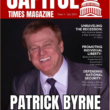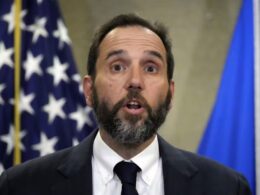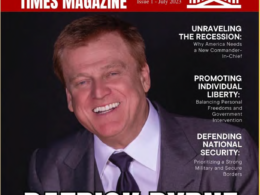I’m usually a real optimist. Sometimes to a fault, according to my more balanced wife. But when it comes to financial market reform, I’ve devolved into a deeply cynical pessimist.
Too many stinging disappointments, I suppose.
Too many instances of people behaving badly, to be certain.
But as they say, there’s some value in expecting the worst…you’ll never be disappointed.
And so it was with today’s second and concluding session of the SEC’s roundtable on securities lending and short selling: I expected the absolute worst, but in the end was pleasantly surprised to find that it wasn’t quite as bad as I feared.
That’s not the same as proclaiming it a good thing, because it was not. Indeed, I stick by yesterday’s characterization of the event as farce with a pre-determined outcome.
Having said that, I was deeply impressed by two surprises I clearly had not anticipated. And I’ll get to those in a moment.
But first, an overview.
There were two panels. The first examined proposed pre-borrow and hard locate requirements — keys to closing two of the most dangerous remaining loopholes in the US stock settlement system. The second panel examined proposals requiring enhanced disclosure of short selling data — a good idea but ultimately one that would be much less necessary were the proposals discussed in the first panel enacted.
I’ll start with the second panel, which surprised me by coming down overwhelmingly in favor of more transparency in short selling.
Georgetown University Professor James Angel pointed out that greater disclosure would essentially be doing legitimate short sellers a favor, by vindicating them in cases when they are incorrectly accused of manipulation in response to stocks dropping in value.
David Carruthers, of short selling analytics firm Data Explorers, supported greater transparency in short selling where the goal was to “prevent market abuse and prevent the development of a false market, or to prevent situations where market participants take advantage of a vulnerable company.”
Richard Gates, founder of short selling hedge fund TFS Capital, denied that shorting exacerbated the onset of the current financial crisis, but went on to concede that there should be greater disclosure parity on the short and long sides of market activity.
Michael Gitlin of investment manager T. Rowe Price echoed the position of Professor Angel in saying real time reporting of short versus long sales would result in the “demystification of short selling,” adding, “The ongoing debate of what caused an individual security to decline would largely disappear with this added level of transparency.”
As the lone issuer represented on the panel, Jesse Greene, Vice President of Financial Management at IBM, was enthusiastically in favor of a general overhaul of the SEC’s short selling regulatory framework, including public disclosure of short positions, in order to “improve market stability and restore investor confidence.”
Joseph Mecane, Executive VP at NYSE, noted that market fragmentation has made it more difficult to detect manipulation, requiring regulators have access to more short selling data in order to better conduct market surveillance.
In other words, the second panel was a slam dunk in the right direction.
The first and ultimately more meaningful panel, on the other hand, was the Yin to the second panel’s Yang.
Appropriately enough, Managing Director of the Equities Division at Goldman Sachs (NYSE:GS) William Conley kicked things off, lamenting that “both the pre-borrow and hard locate requirement would require significant infrastructure builds on the part of the industry as well as its participants.”
By “infrastructure builds”, Conley is referring to the development of new software able to track down real shares for short sellers to borrow. He seems to have forgotten three things:
- When there’s money to be made, Goldman Sachs has a rare talent for developing extremely complicated software. Could it be that Conley never met former co-worker Sergey Aleynikov?
- LocateStock.com, then a bootstrapping startup, developed software that accomplishes precisely the same task Conley regards as so burdensome, on a shoestring budget.
- If Goldman Sachs has enough cash on hand to spend nearly $12-billion in employee bonuses this year, it can probably set a couple hundred thousand aside to write some crumby software.
As I predicted yesterday, much of the balance of Conley’s mic time was spent echoing the anti-reform talking points currently being circulated on Capitol Hill by his employer’s army of lobbyists — in some cases, verbatim.
William Hodash, Managing Director at DTCC, took us on a trip to his organization’s mindset circa 2005 by pointing out that fails to deliver are not necessarily evidence of naked short selling. With one foot remaining firmly in 2005, another in 2009 and a third in a pile of his own illogic, Hodash then said that the reduction in fails observed before and after the SEC’s implementation of Rule 204 “may be relevant to the discussion of whether naked short selling remains a problem.”
No, you didn’t miss anything. That’s what he said, with all remaining panelists basically pleading some variation of the on his and Conley’s approaches.
With one very prominent exception: Dennis Nixon, Chairman of International BancShares Corporation (NASDAQ:IBCA).
Looking at the program, I had assumed that IBCA’s role on the panel was that of a broker or other market intermediary. Well I was very wrong. IBCA was there in the role of an issuer targeted by naked short sellers, and Nixon very poignantly expressed the anguish of someone in his position, after a 45-day long bear raid removed $1.2-billion in IBCA shareholder value.
“And I think it was all attributed to this predator-type short selling that goes on in this market today that’s uncontrolled. It’s unbelievable,” Nixon said.
That was the first surprise.
The second surprise came from an even less likely source: Commissioner Elisse Walter.
Mostly silent throughout the previous day’s panels, today Walter made it clear that she’s not buying the excuses offered by industry representatives insisting this problem is too much for them to tackle.
“I’m sort of surprised that the industry hasn’t come up with a solution, particularly as this controversy has continued to swirl and does not go away,” Walter said, adding that by failing to address the issue, the industry is essentially passing the cost of non-compliance on to the SEC’s own Division of Enforcement.
I think she’d make a stronger case had the Enforcement Division brought more than two cases against naked short sellers in its entire history, but that’s a topic for another post.
The bottom line is, this panel was undeniably stacked against any additional meaningful steps to limit illegal naked short selling, but the contributions of Dennis Nixon and Elisse Walter were as welcomed as they were unanticipated.
The entire affair could have been much better, but also could have been much worse.








Very good to know. Thank you Judd. More to come. The cat is out of the bag and BIG people afre following your lead.
Thanks Judd, it is unfortunate that the victims of history’s grandest swindle are so underrepresented, but it’s all we’re going to get until some form of revolution forces the criminals to relinquish their deathgrip on our pensions and, indeed, our, and our country’s, future.
Aside: Imagine if wallstreet had actually gained more access to our retirement and pensions as once advocated by Mr Bush and his coterie?
Too horrible to contemplate.
Nice work Judd.
Please compare note with Taibbi frequently as I feel you two bees could set a few bonnets a-buzzing…
Appears that the SEC either never had, or is rapidly abandoning feigned interest in, any desire to implement Uptick Rules:
http://www.marketwatch.com/story/sec-losing-its-taste-for-fighting-short-selling-2009-09-30
Meantime, Sen Kaufman smelled a rat long ago:
http://www.marketwatch.com/story/schapiro-to-explore-limit-on-naked-short-selling-2009-09-30
What the HELL will it take?
Hedge Funds Seek to Head Off New Regulation: New York Times Link
What is there to examine Mary, JUST DO IT!!!
Sept. 30, 2009, 11:37 a.m. EDT · Recommend (2) · Post:
Schapiro to explore limits on ‘naked’ short sellingExplore related topics
Banks Story Comments Screener (64) Alert Email Print ShareBy Ronald D. Orol, MarketWatch
WASHINGTON (MarketWatch) — The Securities and Exchange Commission is exploring stringent action against naked short selling, considered by some politicians and academics to be a key contributor to the financial crisis, Chairwoman Mary Schapiro said Wednesday.
“The commission is concerned about abusive ‘naked’ short selling and persistent fails to deliver and the potentially manipulative effect this activity can have on our markets,” Schapiro said at an SEC roundtable. “Thus, we are examining whether a pre-borrow or ‘hard locate’ requirement or another alternative is necessary or would be effective in addressing such activity and preventing market manipulation.”
Schapiro said the first panel at the agency roundtable will discuss a proposal from members of Congress for an SEC study of whether a pre-borrow requirement would end naked short selling. With such a requirement, an institution would be required to arrange formally to borrow shares, or “pre-borrow” before a short sale. Industry officials also call such a requirement a “hard-locate.”
Rest of te article at link below.
http://www.marketwatch.com/story/schapiro-to-explore-limit-on-naked-short-selling-2009-09-30
Judd, if you guys have a chance to have any input, could you bring up the whole issue of custody?
Naked shorting is a trading strategy. It could be as simple as free riding (selling a stock, then buying it back before the three days is up). It’s more like kiting a check and more about something temporary in nature.
What about the bigger issue of custody. The brokerages and clearing brokerages represent to their clients that they own X shares, but secretly only own X-Y shares. The Y represents the fail in the system. It seems to me this whole problem could be fixed quickly by requiring them to own the number of shares they represent to their clients that they own. To me, it is fraud to hold someone else’s asset in trust, then turn around and sell it or get loans against it.
A couple quick fixes come to mind:
– the states should be allowed to audit brokerage and clearing brokerage records to ensure they actually own what they say they own
– companies should get NOBO and redacted OBO lists, including for shareholders in any country where their shares are available for sale, so companies would know with absolute certainty what the level of fails is. Companies should be required to post the fails level in their annual reports as that pent up buying is valuable information for new investors considering an investment.
Finally, I’d like to know how market makers are treated differently and why they are allowed to manipulate markets to guarantee they never lose money. I was told that 95% of market maker trades in penny stocks are not real. They can first establish a large short position quietly, then work as a team, pulling bids and printing trades to make it look like there is a big sell off, when there wasn’t one real trade that day. Then they all put in big offers at the lower level and wait for real paniced shareholders to hit the bid. All those fake trades which were printed to the tape, are quietly canceled after market, without any notification to real shareholders.
My thought is that any market maker short should have to be backed with 100% cash of the original sell price if the fail isn’t covered within seven days.
excellent point about custody. anyone who has an individual retirement account is at the mercy of the custodian who manages it, yet what safe guards are in place for investors to insure their shares aren’t being used against them by their custodians, meaning if they are using our IRAs shares as locates without our consent! We can’t short stocks with such retirement accounts. Its like were expected to trade with one arm tied behind our back, a system that is set up to fleece us and no safe guards to insure our very custodians aren’t using what is ours against us!
The new argument is that ALL shares are naked as you only ever trade chits or claims on shares rather than the real shares. The industry is going to argue that, don’t worry, these chits are all backed by real shares at the DTC and no one has ever proven otherwise.
http://www.publicradio.org/columns/marketplace/scratchpad/2009/10/getting_naked_part_2.html
http://online.barrons.com/article/SB123940701204709985.html?page=sp
Summarize the problem as best you can for Barron’s readers.
With most of America’s biggest banks insolvent, you have, in essence, a multitrillion dollar cover-up by publicly traded entities, which amounts to felony securities fraud on a massive scale. These firms will ultimately have to be forced into receivership, the management and boards stripped of office, title, and compensation. First there needs to be a clearing of the air — a Pecora-style fact-finding mission conducted without fear or favor. [Ferdinand Pecora was an assistant district attorney from New York who investigated Wall Street practices in the 1930s.] Then, we need to gear up to pursue criminal cases. Two years after the market collapsed, the Federal Bureau of Investigation has one-fourth of the resources that the agency used during the savings-and-loan crisis. And the current crisis is 10 times as large.
Those who decry the banks the loudest are also those who naked shorted them and profited from their collapse (a manufactured term).
Coincidence?
To create FUD by claiming the banks are insolvent is an Einhorn, Chanos, etc., game.
My thought is the banks (Goldman Sachs) are also holding toxic securities entitlements. I bet that’s the elephant no one is talking about.
We already know that the same mortgages were used to back more than one bond which isn’t that different than using the same share to back more than one entitlement.
TOXIC ASSET = WALLSTREET FRAUD
PONZI?
Don’t you love how the paid propaganda pieces in the MSM always rephrase as a question to create the feeling it isn’t biased?
Instead of saying “Naked Shorting isn’t a Problem”, they say “Is Naked Shorting a Problem?” to make it seem like they haven’t been editorially compromised by the advertorial piece.
http://www.forbes.com/2009/10/01/kaufman-isakson-markets-naked-short-selling.html
I am glad this topic is not going away. The basic problem can be distilled down to the fact that there is no settlement system in the USA’s securities markets.
Nobody guarantees settlement nor is anyone a settlement agent and the big prime brokers that can exploit this big void want to keep the status quo.
If there were a settlement agent or if someone guaranteed settlement of trades, as Congress asked for in 1934, we could all go home. The scandal for the government is ignoring the federal statute mandating that a settlement system to be implemented. Neither the industry nor the SEC has acted on this mandate since 1934.
Someone should just have asked, why the SEC nor the industry has implemented the mandate by Congress for a settlement system? It’s a no brainer that all these problems stem from this fact.
With a settlement system, there all problems re: settlement failures go away. Without a settlement system, the problems will never go away. Simple as pie. The lack of a settlement system is like keeping the door open for criminals. Congress mandated the door be closed back in 1934, but it is still open.
And I agree that if the issue had been raised about the old existing fails, that it would have turned the discussion more colorful. Who is going to pay to settle all those settlement failures that have been racked up in the past. Even if settlement failures stop today, the old ones will not just disappear.
PS: Please forgive the typos in my last post………
Good point. Who’s the idiot that thought it was a good idea to let people put up only 102% of the current value of the trade as collateral?
You can short $1 million worth of stock at $1, putting up $20,000 as collateral (2%). When the stock goes to $.01, your collateral is only $10,000 and you can withdraw the original $1 million + half your collateral and leave town, leaving the system to fix your mess.
The old fails are so toxic, that I doubt the obligations to retail shareholders can ever be honored.
Nicely put. Now who will CHAMPION the cause of the average investor?
Perhaps Sen Kaufman will come out with an amendment: “Investors Bill of Rights”!
http://dealbook.blogs.nytimes.com/2009/09/30/debate-heats-up-over-naked-short-selling/
Thank you Judd for being the eyes and ears for We the People and sharing what the SEC has yet to recap for We the People! With that being said, I ask that you and the rest of the Deep Capture review the following and I thank you in advance!
The Biggest Banking Heist in World History: Washington Mutual
Companies / Market Manipulation
Oct 01, 2009 – 03:03 PM
By: Mike_Stathis
http://marketoracle.co.uk/Article13894.html
of special interest above and beyond the obvious from the article:
…A few months later when I attempted to spill the beans, I emailed the SEC complaint to three reporters; reporters from the NY Times and Washington Post who I thought could be trusted to deliver the truth because they had exposed some mortgage fraud by WaMu. Boy was I wrong.
One reporter wrote it off as a “half-baked conspiracy.” He even made mention of the lack of credibility regarding the tip I received from journalist who was told the seizure was politically motivated, without bothering or caring to verify it.
I told him I had the name and contact number of the reporter, but for some strange reason, he wasn’t interested. As you might imagine, this reaction, which I deemed to be unprofessional, unappreciative and disrespectful, was dealt with appropriately. I basically put him in his place as you might imagine.
When a reporter is telling a Wall Street insider his market insights are rubbish, especially without even bothering to investigate them, it implies one of two things.
He is either a complete idiot………… or
He wants to stay away from something potentially disastrous to his career.
My guess is that it was a combination of both.
(Perhaps I’ll disclose his name if you email me, but only if you promise to email him and tell him what a jackass he is)
It was then I realized that journalists would only be willing to go after obvious fraud that everyone knew about; like mortgage fraud. They aren’t willing to uncover massive fraud that would have drastic ramifications for the biggest banks in America.
I’m a bit anxious to publish the emails from this, as well as the others I’ve collected over the past three years from the media when I tried to warn people of this mess. I’m not talking about generic doom and gloom extremist predictions that you may have come across from the media snake oil salesmen. I’m talking about specific predictions which have materialized.
Several weeks later I received a call from a couple of SEC attorneys who had been assigned to investigate WaMu fraud. They wanted to know more about the details of my allegations. What I suspect is that they really wanted to know how much direct proof I had so they would know whether or not to pursue the case; to cover their behinds. Otherwise, for whatever reason they weren’t going to pursue it. I was quite certain about that.
After explaining things, I requested to see the short interest data for WaMu in the months prior to the collapse.
Sensing these SEC officials lacked the expertise (or motivation) required to prove my case, I wanted to prove that JPMorgan committed securities fraud and benefited from this by its taxpayer-funded purchase of WaMu (which would also imply taxpayer fraud). But the attorneys refused to hand it over. Go figure….
Do make a point to read the whole article.
Thanks for your report, the SEC put the actual roundtable out.
http://www.connectlive.com/events/secroundtable0909/
Wednesday, September 30, 2009
Panel One: Controls on “Naked” Short Selling: Examination of Pre-Borrow and Hard Locate Requirements.
WindowsMedia | RealMedia
Captioned Version: WindowsMedia | RealMedia
——————————————————————————–
Panel Two: Making Short Sale Disclosure More Meaningful: Public versus Non-Public Reporting; Consolidated Tape Disclosure; Timeliness of Information.
WindowsMedia | RealMedia
Captioned Version: WindowsMedia | RealMedia
Dear Madam Chairman Schapiro:
While I enormously admire your spirit of change, enjoy your remarks and speeches, and support your initiatives to rein in on the abusers of the financial systems, I am disappointed at the composition of the recent panel on short selling and pre-borrow. The panels that discussed these topics were comprised largely of supporters of short selling, short sellers themselves, and academics who are obviously using their lop-sided research which ignore the realities of short selling that Main Street faces every day (e.g. Short & Distort) in favor of large hedge funds who are ruining the economy, specially small innovative companies, and Main Street investors.
I found it insulting to the honor of the SEC for these guys to sit there and lecture the SEC about short selling being “a force of good” while completely ignoring the very practices that many short sellers are involved in which are highly immoral, unethical, disruptive to the economy, extremely harmful to small innovative companies that are the future of the world economy — actions which are in my opinion and legal philosophy, criminal.
Nobody spoke about a well known and widely utilized practice of short-and-distort which small companies and Main Street investors have to face every single day. I will elaborate on this theme and give you more detailed feedback at a later date but since I feel this issue is urgent, I had to write to you before finding the time to review and research all the submitted material. As I said in previous letters, the house is on fire — Main Street needs protection now. Many small innovative companies are abused by short sellers every day and we need your protection against these abuses.
The problem is not only with naked shorting. Reduction in number of fails-to-deliver does not mean the problem of abusive short selling is solved.
Secondly, I found the discussion on whether pre-borrow and hard-locate should be mandated or not a philosophically false question. According to every legal philosophy it is a crime to sell something that is not yours and you have not borrowed. Except of course in this case where we discuss at length whether people should be allowed to sell something that is not theirs and have not concretely borrowed. What an unintelligent and pitiful discussion. This is a core aspect of the corrupted financial markets which the SEC needs to take control of and resolve by mandating immediately — not after years of discussion and getting lectures from the short sellers themselves how they should be left alone.
Thirdly, regarding disclosure, again, a facet of our corrupted financial system is that short sellers get preferential treatment — the people who are inherently interested in destruction of hard-working innovative companies are getting preferential treatment to those who invest in those companies and help the economy by doing so. Another very crooked feature of our markets that the small companies that have to rely on equity markets to raise needed capital have to live with every day is that the SEC is protecting the names of large short sellers who are mostly there, and many are lobbying every day, to have those companies destroyed. This is a fact Madam Chairman. The SEC should disclose large short sellers just as it does large shareholders without any more delay than required for long positions. The current protection is very much against the Main Street which you have said you like to protect. Let’s see those words turn into action.
Fourthly, what happened to the uptick rule? Lots of talk but no action.
Lastly, exempting market makers from further regulation is a very bad idea because we have concrete proof that market makers are sometimes in bed with short sellers and large hedgefunds and themselves are engaged in “short and distort”. Do not every think that market makers are good boys. There are many instances of their highly immoral and unethical and criminal behavior in the practice of short-and-distort. I can think of one instance of a market maker, whose analyst was publishing faulty research reports to support their large hedgefund short clients. The corruption runs deep. Allowing market makers off the hook will not help the cleanup which is urgently needed.
I will send in a more detailed feedback in writing or video at a later date.
Many thanks for your kind consideration. We need help Madam Chairman. Small companies need help. Small company investors need help against abusive short sellers — not just naked short sellers but all short sellers. They can still play their supposed “force of good” in the market within much more stringent regulation and not just direction by the SEC. For too long they’ve gotten used to raping, raiding and abusing Main Street and now they’re heavily opposed to any regulation. Using a lot of arguments and their academics, they’re simply trying to distract the SEC from the job that you must do: to clean this mess up, now, and not later. We need urgent immediate action. Please help protect Main Street from short sellers — not just naked short sellers.
Best Regards
Reza Ganjavi
646-238-0212
PS — here’s my new song written for an environmental campaigne against littering — I should add a verse about cleaning the financial markets too !! Let me know if you like the song 🙂
http://home.datacomm.ch/rezamusic/Lets_Keep_Our_Planet_Clean.html